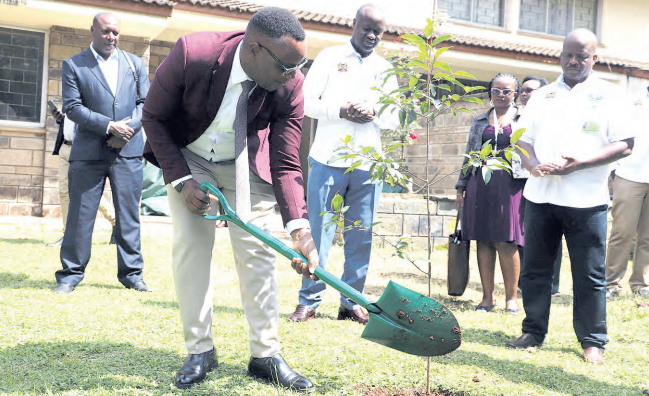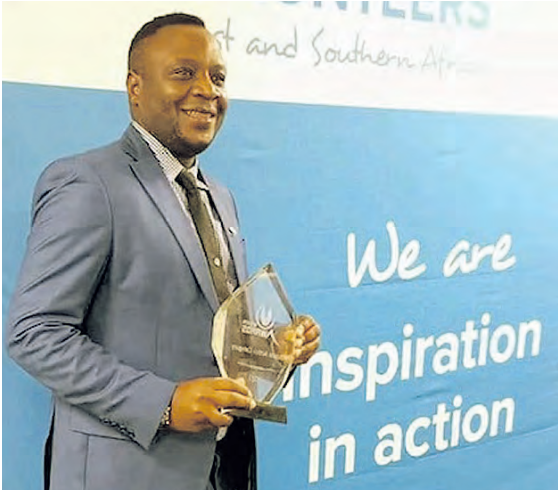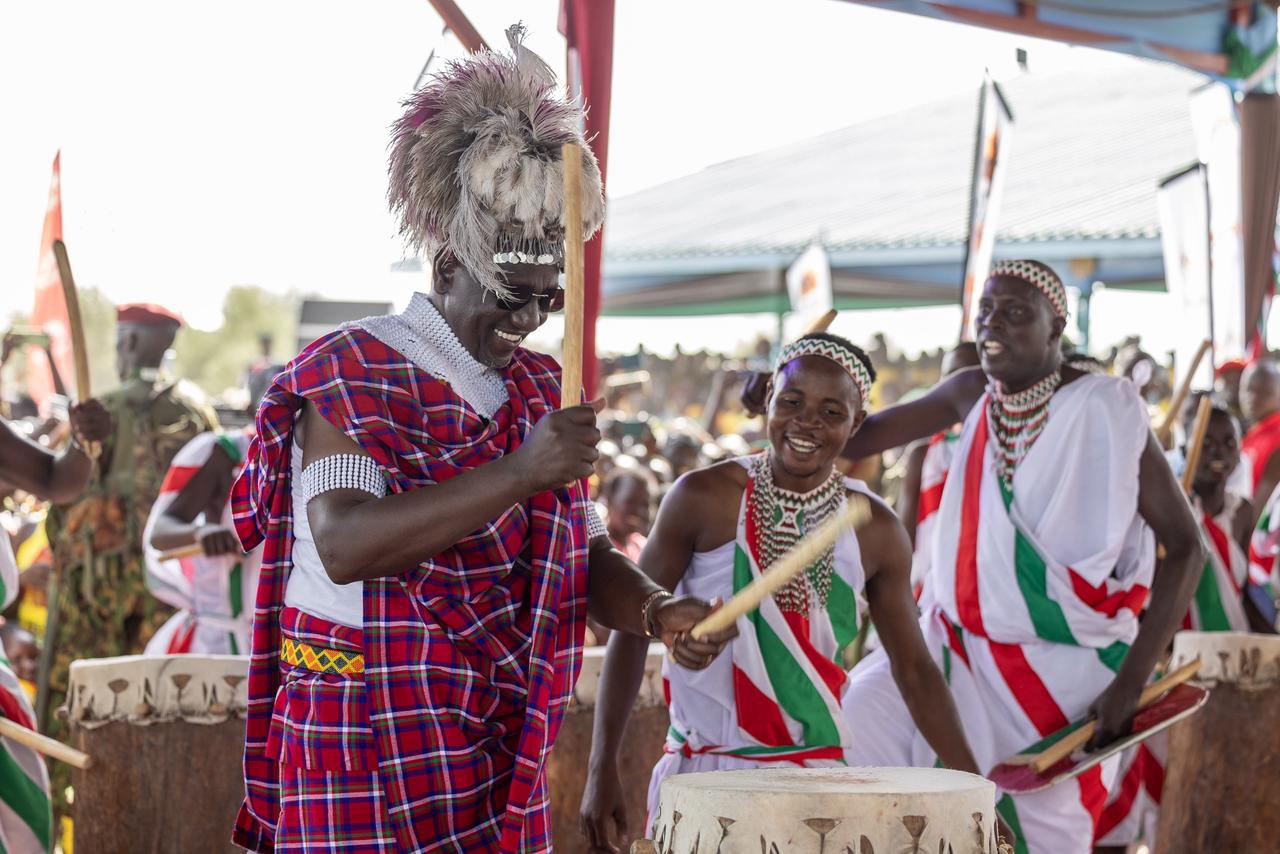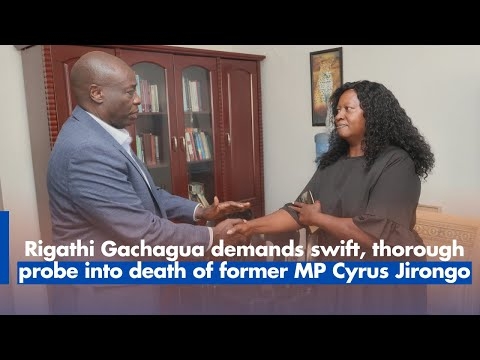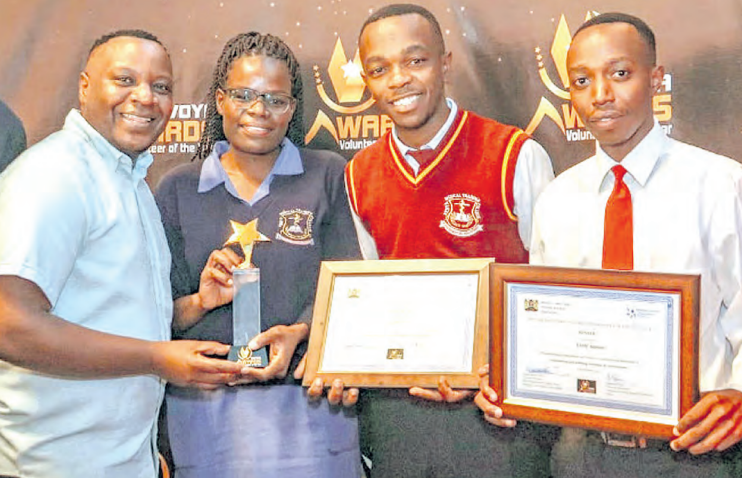
I stand at a distance, watching how every youth is trying to take a photo with him. The way he’s relaxed, you might think he has all the time in the world. This is not the case.
In a few, he’s expected to catch a flight to Sierra Leone for the same mission. After feeling that at least he’s allowed everyone to enjoy his company, he comes straight to where I am, ready for an interview. His contagious smile energises me.
He’s in sportswear. He directs me to a silent room. No bodyguard, no one to monitor his whereabouts, just him and I.
Guess who he is? This is Dr Joe Bonga, founder and CEO of Africa for Sustainable Development Goals, a youth-led initiative focused on empowering young Africans to champion the UN SDGs.
The organisation builds a network of passionate youth, providing them with the skills and opportunities to drive positive change and raise awareness about sustainable development across the continent.
For years, youth participation and representation in governance, advocacy and leadership roles in Africa has been low. Dr Bonga believes it’s a generational problem.
“I believe there’s a misunderstanding and mistrust between generations. The older generations think the younger generations are not ready and are out of touch with the realities,” he says.
“There has to be a deliberate inter-generational mode of operations to invite young people to these decision-making tables. There is also nepotism and tribalism that’s cutting away young people from opportunities.”
His organisation is working to eliminate this challenge.
“As Africa for SDGs, we are building the capacity of young people because if you’re invited and you don’t have capacity, it’s a waste of opportunity. Young people need also to fight for and claim spaces because some don’t come easy.” Bonga says.
On the same note, he’s glad that Africa nowadays involves women in political governance and leadership positions after empowering them. However, he’s worried that over-empowering them might again be a challenge to men.
“I believe the best thing Africa can do is to empower men to know how to work and live with empowered women,” he says.
“But if we empower women too fast and too much, we might get another new imbalance, where the boy child is now more marginalised. It’s very important to have intentional balance between the two genders in empowerment but so far, women are doing well.”
IMPUNITY-DRIVEN POVERTY
Bonga says impunity is one of the reasons Africa countries are poor as it hinders the implementation and enactment of sustainable and long-lasting policies.
“If the rule of law is not being followed then definitely, we have regimes that build cartels around them, and they exploit systems and manipulate structures to these systems to suit and benefit them,” he says.
“Things like nepotism and other factors can be detrimental to the implementation of policies and economic development.”
This calls for solid governance and leadership that upholds human rights, he says.
“Unless you respect human rights, corruption will continue to take a big chunk of our budgets. And this is now complicating project completion and leading to a growth in economic inequalities.”
Bonga adds that when systems don’t function, no matter how much you put in your energy and efforts, it will be in vain. Africa for SDGS is pushing for Uwazi Uongozini to champion goal 16, which is Peace, Justice and Strong Institutions.
“When we have strong institutions, they can then provide ecosystems that can help build the economy and help people come out of poverty,” the CEO says.
Africa for SDGs also trains people to tackle the scourge of climate change.
“We build capacities for individuals coming up with scalable and transferrable ideas that can mitigate the social, economic and environmental challenges experienced in Africa using local resources,” Bonga says.
“This puts us at the forefront in raising a generation of people leading from the front for sustainable leadership and lifestyles.”
CAPITALISING ON AI
Bonga believes Africans should take advantage of the rise of Artificial Intelligence and maximise on it. “AI is a valuable addition and I think Africa needs to learn how to use AI tools because it’s already here with us and we can’t push it away,” he says.
“Africa stands a great chance of leveraging on AI as a great advantage to meet some of the knowledge and research gaps.”
He believes Donald Trump’s win as America’s president won’t affect the operations of Africa for SDGs.
“We just hope that issues like refugees will be sorted. And that there will be right policies that that will sustain peace in various countries in the world and also solve migration complications,” he says.
What people should expect from Africa for SDGs by 2030, Bonga says, is more awareness of what SDGs are, as well as more involvement and engagement at local and national platforms.
Over the next 10 years, the CEO plans to come up with an education system that exploits the home-schooling philosophy.
“We need to change the way education and the learning system works in Africa,” he says.
He says communities that cannot access and afford education should organise themselves as cohorts.
Then learning coaches and instructors can be trained from local communities to teach people who are vulnerable and misplaced so that they learn in a context where they feel at home and loved.
His vision also entails more proactive youth in future. “I see more young people engaging in democratic processes, leadership, and I see myself having to do less work because a lot is happening,” he says.
PERSONAL LIFE
Bonga’s role model is a spiritual figure. “Jesus,” he says, adding that he starts his day with prayers. Away from his professional obligations, Bonga creates time for his family.
“Every moment that I’m not at work, I’m with my kids and I enjoy being with them,” he says, smiling broadly.
“Since I’m a night owl, I can spend my night working then at daytime with them and sometimes with my wife. You just have to create time, it’s hard but you have to.”
Next year, he’ll be hitting nine years as the CEO. “The experience is good,” he says.
“I love leadership because it helps me think and reason and see life from a 360 degrees perspective. Everything matters when you’re a CEO, how you carry yourself with others, partner and network, and how you handle relationships because everything again is under your control,” he says.
“There’s no much time to celebrate and anytime you celebrate, you are at the same time worried about the next feat of success.”
His greatest experience is the cultural exchanges across the countries in Africa. “Africa is so diverse that a single country can present several cultures and tribes, and that’s really interesting,” he says.
His biggest inspiration is creating synergies in this diversity and finding a common space where these cultures can work together.
“Europe and America are a bit homogeneous in terms of culture and politics unlike Africa, which has a great diversity,” he says.
He encourages youths to do their best and believe in themselves. “The world is not waiting for you. In 10 years, we might be America. America is not sitting waiting, it’s also moving,” Bonga says.
“Let’s always compare ourselves to the best that we can be and not to the best people have to be.”
Bonga is also the Africa regional director for ICY Africa, running initiatives like Leadership and Development Academy across 33 countries in Africa.
He is also a philanthropist. He takes coffee in the morning and tea in the evening, and what he enjoys the most is ugali and anything meaty. In his free time, he likes watching movies.
